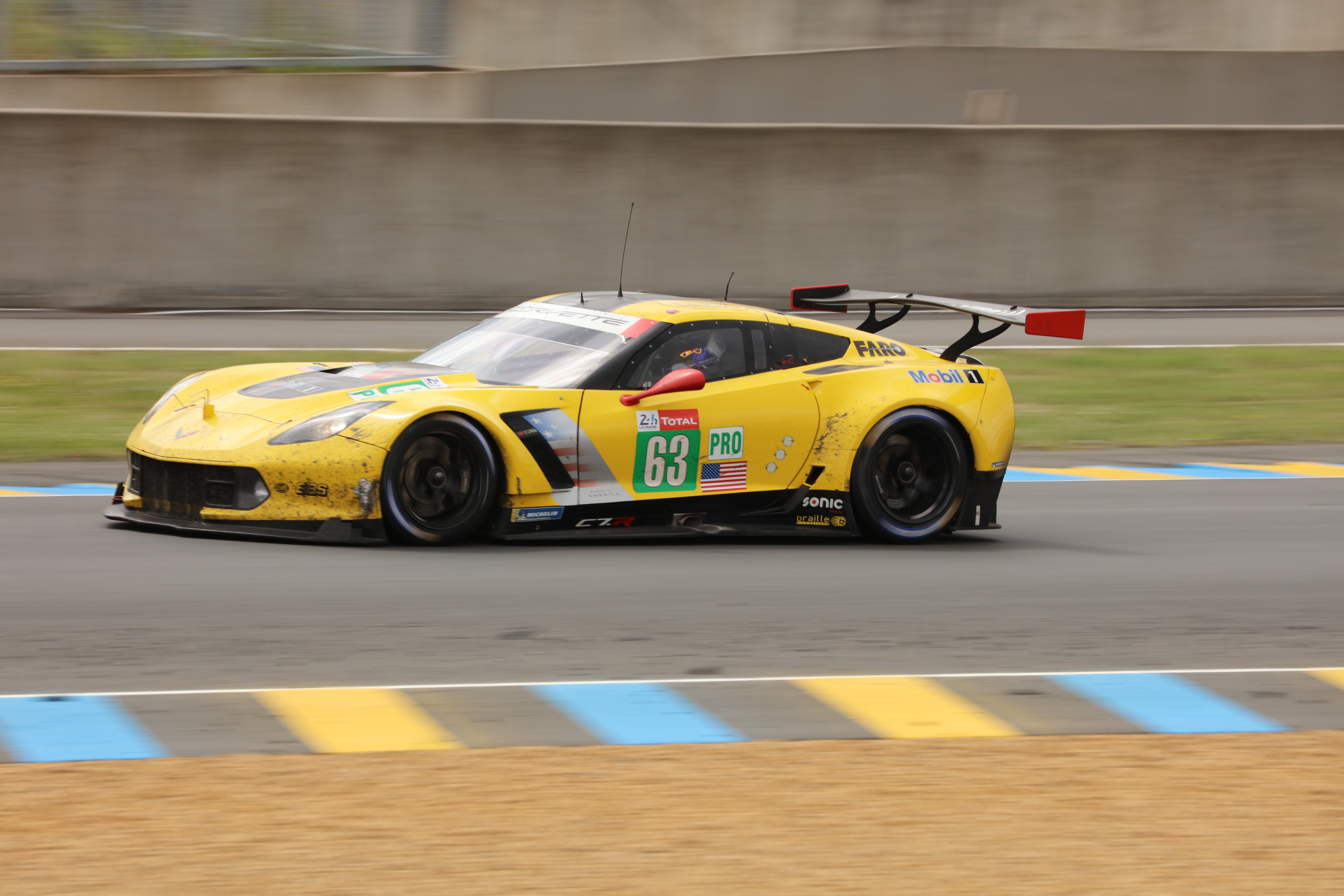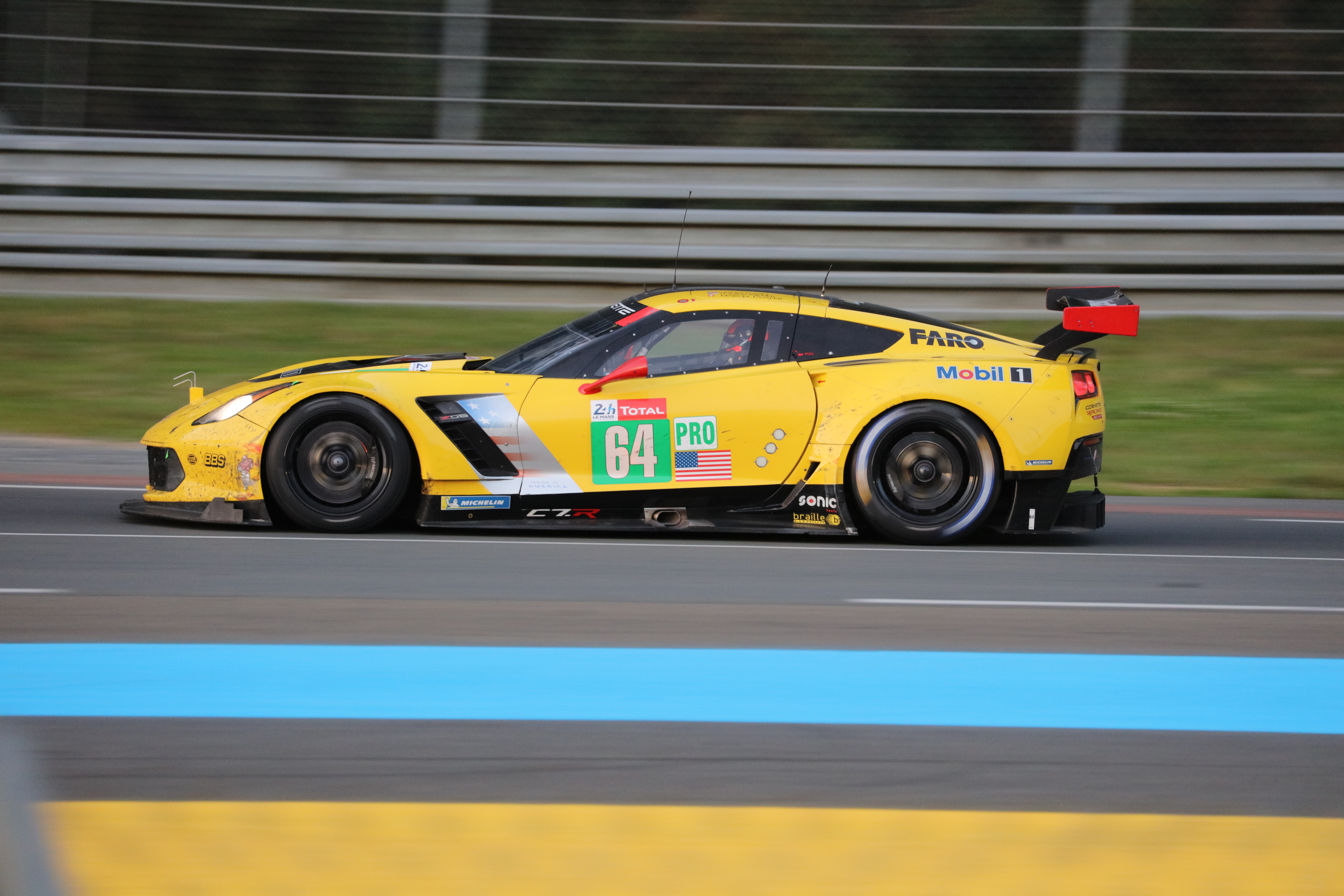Corvette Racing, in their 20th consecutive season, made their 19th visit to Le Mans to compete in the world’s most famous 24-hour race. They took their two C7.R Corvette race cars over to France to battle with 15 other competitors in the GTE Pro Class. Ford entered four of their Ford GT cars, Porsche had an equal number of 911 RSR racers, Ferrari had a three-car entry and BMW, Aston Martin and Corvette competed with just two cars each. On paper, the race should have been a mouth-watering 24-hour battle with close racing throughout. Sadly the race took place on track, not paper, and was a complete disaster.
The organizing body, the ACO (Automobile Club L’Ouest), has regulated the race such that if one (or more) cars gets split by a safety car, there is then no way for the other cars to catch up during normal race conditions, assuming the lead cars don’t have an issue. Sadly, this was the case this year. The eventual winner of the GTE Pro class was effectively decided both before the race with a favorable Balance of Performance, and during the race when the leading Porsche got split from the rest of the field by a safety car (also a Porsche) in the fourth hour, allowing them to take the class victory by more than a lap.
The #63 Corvette started in ninth place while the #64 Corvette was further behind in 15th place at the start of the race.
In 2017, the GTE Pro class was decided on the final lap. The final 30 minutes had seen both Aston and Corvette competing for the victory in a thrilling finish which eventually, Aston won. The outcome of the race in 2018 being decided so early meant that the next 20 hours of “racing” was a complete waste of time for all involved. The ACO is killing Le Mans as a race with their excessive regulation. It is not just the fans who are frustrated with this either. The drivers and team personnel are equally frustrated and many expressed their frustrations during interviews on Radio Le Mans during the event.
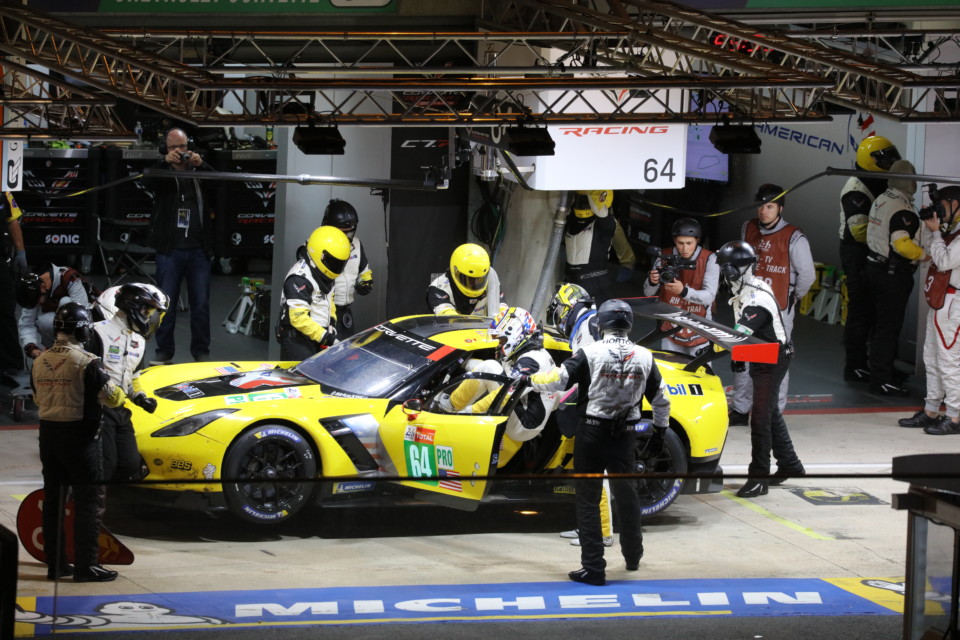
Regulations have begun to limit the benefit of Corvette’s typical speedy pit practices and driver changes.
Sure, we love Corvettes, and this might seem like sour grapes – but it isn’t. We’re racing enthusiasts and enjoy close and exciting racing throughout the duration of the race, the result in doubt until the final lap. 2018 Le Mans was far from this, and until the ACO realizes they have made some serious mistakes, it won’t get better. Manufacturers won’t spend their money and compete if they don’t feel there is a level playing field where they have a chance of a marketing coup from winning the race.
The ACO has regulated the racing to such a degree that each stint of the race is decided by a maximum number of laps. The pit crews and engineers cannot influence the race as they have in the past by using clever strategy or faster pit stops. The only thing that the ACO hasn’t regulated (where Corvette Racing has an advantage) is when a brake change is required. Corvette Racing did a front pad and rotor change in 29 seconds!
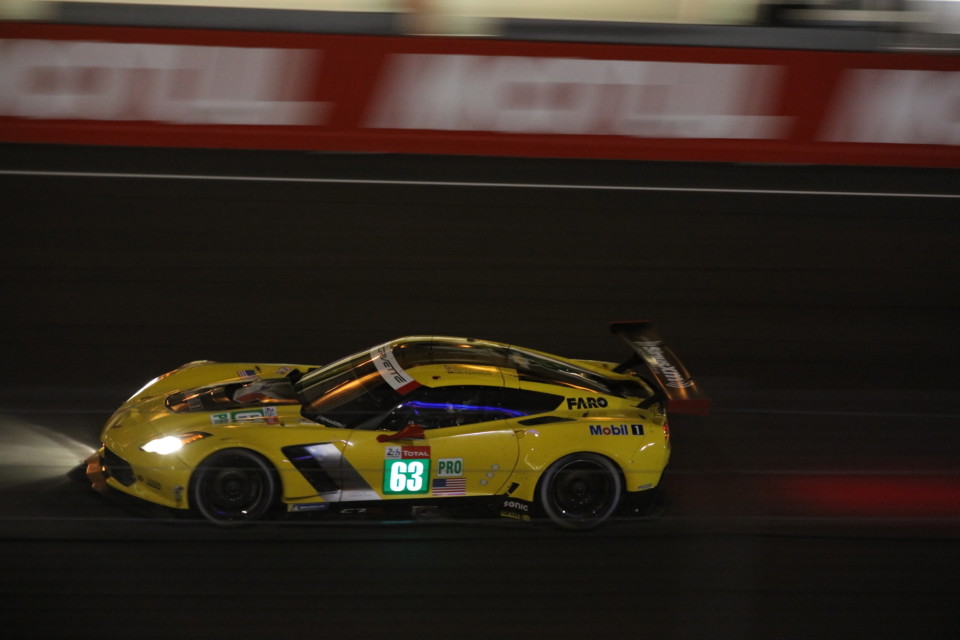
The #63 Corvette soldiered on through the trials, eventually finishing in 4th place. Thanks to the safety car issue that allowed Porsche to pull away from the pack early on, #63 was still one lap behind the leader.
Qualifying for the race, Corvette Racing saw the #63 Corvette C7.R take 9th place on the grid and the #64 sister car sat back in 15th. Despite a balance of performance adjustment of 5kgs weight reduction for the cars on Friday, after the ACO ADDED 10kgs (just over 22 lbs) on Tuesday, it made little difference to Corvette’s chances against particularly the Fords and Porsches.
Both Corvettes made good starts and Olly Gavin in the #64 made his way up from the lowly 15th place to run 12th before handing the car over to Tommy Milner. Just before the two-hour mark, Tommy pitted with a broken front suspension. This dropped the #64 Corvette C7.R out of contention as it took the team about ten minutes to fix the problem. The #64 eventually retired from the race during Sunday morning with cooling issues.
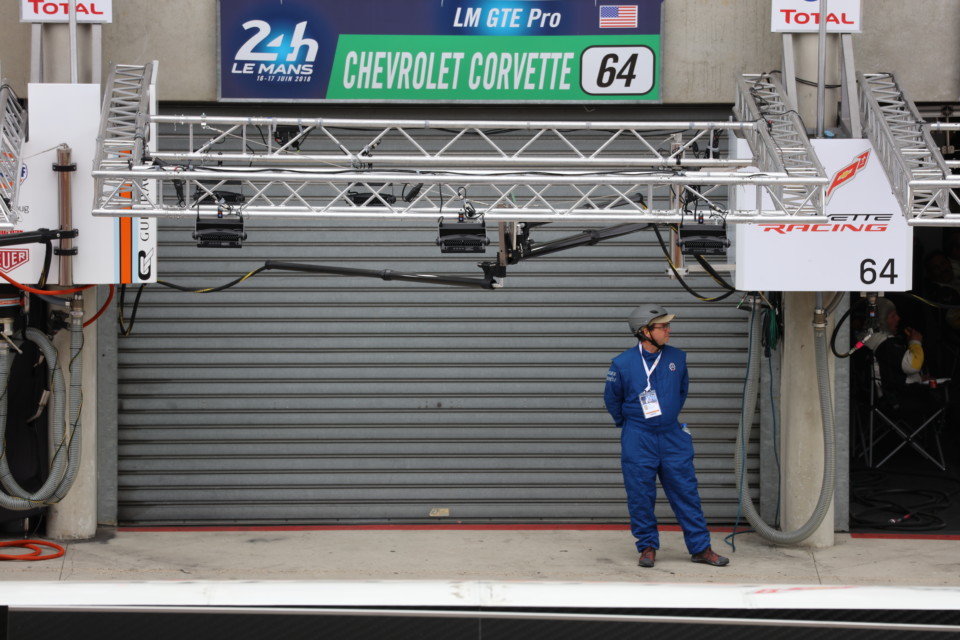
#64 Corvette garage door shut at Le Mans – this is the traditional sign that the car has retired from the race.
The #63 Corvette C7.R moved up to 7th place during the first stint and managed to get as high as 5th by the end of the race, but thanks to the early safety car issue, was more than a lap adrift of the Porsche that eventually triumphed. After the completion of the race, it was determined that one of the Ford GT’s got relegated down the order after Tony Kanaan was found to have not completed the minimum drive time of six hours, which promoted the #63 Corvette C7.R to 4th in Class and 20th place overall.




